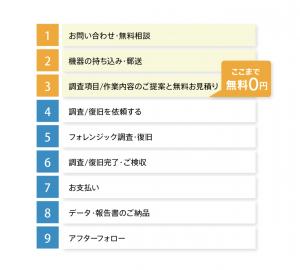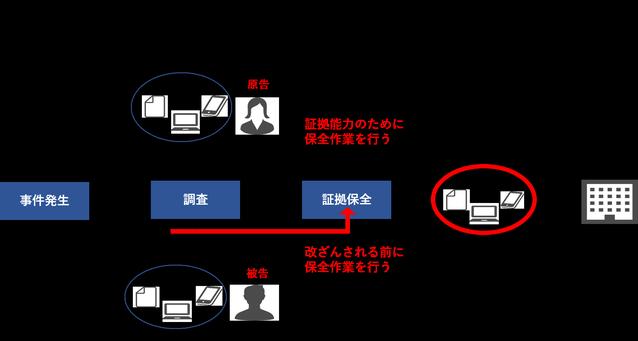
Smartphone data can be unfavorable evidence in court
This article is reprinted from the Kaspersky Daily blog. I am editing some.
As I was blinded by the intense light, I was bombarded with life-or-death questions. "What were you doing between 22:00 and 23:30 on the 5th of last month?"
This is an interrogation scene depicted in many detective novels. If it's a novel, the eyewitness will quickly tell the story. But in reality, we can forget many details. However, with a smartphone, almost everything is recorded about what you were doing at that time.
Experts call the latest mobile devices like this. "Treasure trove of justice." Because they know so much about their owners. Your smartphone stores call history, emails, photos, videos, and a list of sites you browsed. Moreover, all the information has the exact time and geotag. No wonder the FBI forced Apple to hack an iPhone owned by a San Bernardino shooting suspect.
Generally speaking, smartphones store much more data about their owners than telecommunications carriers. For example, GPS receivers built into smartphones can get a more accurate location than triangulating cell towers to track the location of a cell phone.
The "interrogation" of smartphones is automated. The method is similar to computer forensics, using special software to copy all the necessary data (mainly useful data such as call history and emails).
The confrontation between Apple and the FBI has shown that the protection built into mobile phones is not perfect. Law enforcement, when faced with the need to hack a device, will do whatever it takes to get there.
It is worth noting that computers and gadgets are set by default to keep deleted files for a certain period of time. Such data can be used as evidence against the owner in court, illegally obtained by hackers, or made public.
Jonathan Zdziarski, a well-known security expert, said that when examining his daughter's iPhone, he always finds various digital traces such as deleted messages and geolocation information ( English article). He also points out that law enforcement agencies have a special interest in mobile devices because of this 'greediness' for user data.

In addition, he is quite skeptical of recent forensic software designed for mobile device data analysis. The way these software collects evidence has little to do with forensic science.
On the other hand, there are those who develop scientific countermeasures to counter such analyses. For example, experts from the University of Glasgow and the University of South Alabama have published a paper describing anti-forensic techniques for mobile devices (PDF). A modification of CyanogenMod was able to fool forensic software. It "succeeded in preventing data extraction, blocking the installation of forensic tools, causing extraction delays, and passing bogus data to industry-recognized forensic analysis tools without compromising normal use of the device." .
There is also an app that protects the user from investigation (there is also a function to prevent family members from prying eyes). According to the app developer, it will allow you to edit call history, wipe device data permanently, and many other interesting features.
Crime, Gadgets, and Punishment
The American Association of Marriage Lawyers (AAML) has seen a surge in the number of digital evidences obtained from wireless devices such as smartphones in divorce cases over the past three years. (English article).
``In the past, suspicious spouses would hire detectives to get more information, but these days, many people are willing to carry wireless tracking devices wherever they go.'' said AAML Chairman James McLaren.
The source of evidence is not only smartphones. Other gadgets can also tell you various interesting facts about their owners. In 2015, a Florida woman reported being assaulted by a midnight burglar. But this women's fitness tracker was the exact opposite. Instead of sleeping at home, the device recorded that she had been up all night and walking around.
Because no trace of the intruder was found in her house, the police decided to "fake the police, fake public safety warnings, overturn furniture and put a knife on the intruder. She was charged with tampering with evidence to make it appear that she received it.
Experts and journalists are also looking for interesting ways to use digital evidence. Does your heart skip a beat every time you walk past your flirt with your fitness tracker? "Perhaps your wife will present that new evidence to you in a divorce lawsuit."
From another perspective, the same fitness tracker can be used as evidence of decreased physical activity after work-related injuries or traffic accidents.
In addition, there is a possibility that smartphones will be investigated in traffic accidents. The New York State Legislature is considering a bill that would make it mandatory to check the presence or absence of mobile devices during on-site inspections after an accident or crash. The media has dubbed the new test device the "Textalizer," likening it to the Breathalyzer breathalyzer.
Cellebrite is developing these devices (English article). The Israeli company promises that Textalizer will protect users' privacy.
I have an important announcement for those who put safety first. In 2015, the Android app Alibi was released. The app constantly records the user's surroundings, for example, recording audio and video together with location information. With this, you can show the user's alibi and evidence to a third party. However, on the other hand, the privacy of others is questioned. Luckily, the app hasn't been very popular, with less than 10,000 downloads on Google Play so far.
To explain the ambiguous relationship between technology and justice, Amber Schroader, CEO of Paraben Corporation, said at the Forensics Europe Expo in London. (English article). “Smartphones have become the most important device for digital evidence due to their close proximity to witnesses and their ability to provide various functions.”
